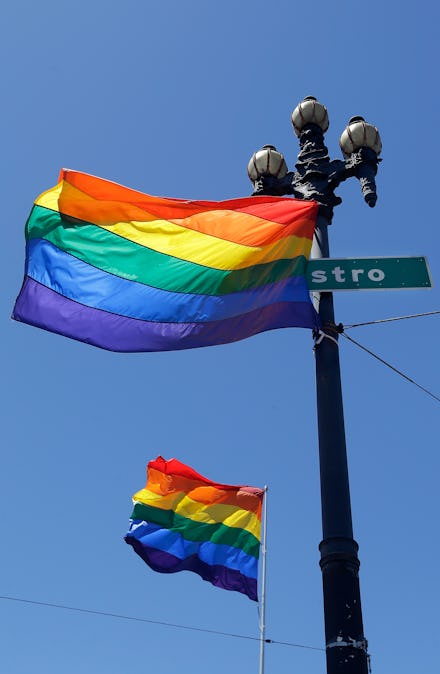The Group Left Out of Almost Every Conversation on LGBT Rights

Recently, a gay man and his partner were asked to leave an Oklahoma Walmart.
The janitor approached the couple, asked them a series of questions about homosexuality, and then told them they were not welcome in the store.
Participating as a visible member of the LGBT community always comes with its dangers and downsides. It is also an essential part of maintaining a presence and voice. It is visibility, among other things, that helps us humanize and personalize each others' experiences.
Conversely, my LGB friends and I are often able to lower our visibility of or even hide this part of our identity if we don’t feel safe. This can be more difficult for my transgender and gender-nonconforming friends, some of whom are in the process of transitioning (and as a cissexual individual, I cannot speak to the transgender experience from a first-person perspective, nor am I trying to).
What I can tell you is 90% of transgender and gender-nonconforming people have reported harassment, discrimination, or mistreatment on the job. One-fifth have experienced homelessness due to bias towards their gender identity. Some 20% have been refused medical care, with 50% of those who did receive care reporting having to teach their doctors about transgender care. A devastating 41% of the transgender and gender-nonconforming community has attempted suicide.
It’s abundantly clear that we need more thorough and inclusive legislation to protect LGBT people. It’s also clear that we (the media, the LGB community, etc.) leave the "T" behind far too often.
Headlines talk about ENDA as a "gay rights bill" aimed to prevent "antigay bias in the workplace;" same-sex marriage is touted as our generations’ civil rights movement, while transgender people struggle to simply obtain proper forms of I.D.; even pop culture heavily favors LGB icons over transgender icons.
I’ve often been proud of our generation for its commitment to self-expression and valuation of individual identity, but if we hope to keep making progress, we need to start looking at the whole picture. It's hard to help protect an identity we so frequently fail to acknowledge.